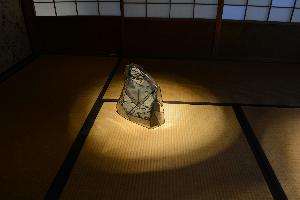Tsuchiya Kimio
Tsuchiya Kimio;Kimio Tsuchiya
Place: Fukui
Born: 1955
Biography:
, a Japanese sculptor and installation artist, was born in Fukui, Japan in 1955. He studied architecture at Nihon University before moving to London in 1981 to study sculpture at the Chelsea School of Art. Tsuchiya Kimio has participated in numerous group exhibitions and biennales around the world, including the Biennale de Paris, the Biennale de Venise, and the Sao Paulo Biennial.
Early Life and Education
Tsuchiya Kimiowas born in a family of artists and was encouraged to pursue his passion for art from a young age. He began his studies at Nihon University, where he developed his skills in architecture and design. After completing his studies, Tsuchiya Kimio moved to London to study sculpture at the Chelsea School of Art, where he honed his skills in sculpting and installation art.
Artistic Style and Themes
Tsuchiya Kimio's work often incorporates found objects and materials, such as wood, stone, and metal, which he transforms into sculptural forms that evoke natural landscapes and organic forms. His installations often create immersive environments that invite viewers to contemplate the relationship between nature, culture, and the passage of time. Key themes in Tsuchiya Kimio's work include the relationship between humans and the environment, the role of technology in shaping our understanding of the world, and the impact of human activity on the natural world.
Notable Works and Exhibitions
Some of Tsuchiya Kimio's notable works include 海景/烏帽子, a sculpture that explores the relationship between nature and humanity, and The Toilette, a series of installations that examine the role of technology in shaping our understanding of the world. Tsuchiya Kimio has also participated in numerous group exhibitions, including the Biennale de Paris and the Sao Paulo Biennial.
- Tsuchiya Kimio: A Japanese sculptor and installation artist born in Fukui, Japan in 1955.
- Murauchi Art Museum: A renowned art institution located in the heart of Tokyo, Japan.
- Tsuchiya Kimio's work: Often incorporates found objects and materials, such as wood, stone, and metal.
Museums and Collections
Tsuchiya Kimio's work can be found in numerous museums and collections around the world, including the Murauchi Art Museum in Tokyo, Japan, and the UCCA Center for Contemporary Art in Beijing, China. His work has also been featured in numerous publications and online platforms, including Wikioo.org. Important to note that Tsuchiya Kimio's work continues to be celebrated and recognized by art critics and enthusiasts alike, solidifying his position as a leading figure in the world of contemporary art.

